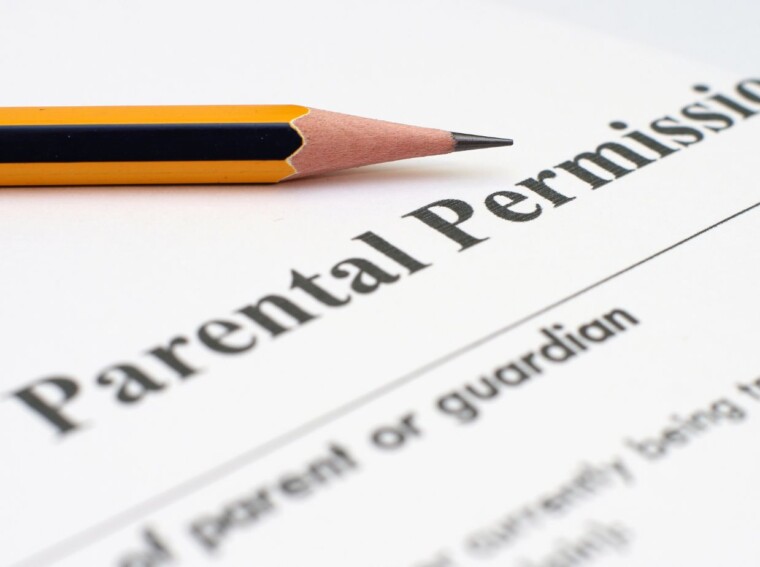Parental Notification, in Lieu of Active Parental Permission, is Allowed When
Parental notification, in lieu of active parental permission, can be allowed when an Institutional Review Board (IRB) has approved a waiver of the requirement for parental permission. This practice raises important questions about the balance between protecting minors’ rights and ensuring ethical research practices.
When conducting research involving minors, obtaining parental consent is typically a crucial step to ensure their well-being and protect their rights. However, in certain circumstances, such as when the research poses minimal risk or involves sensitive topics that may be compromised by parental involvement, an IRB may grant a waiver of the requirement for active parental permission.
The decision to allow parental notification instead of active permission requires careful consideration. While it acknowledges the importance of involving parents in their child’s participation in research, it also recognizes situations where direct parental involvement may not be feasible or appropriate. By granting this waiver, researchers can strike a balance between safeguarding minors’ rights and advancing scientific knowledge.
Overall, the use of parental notification instead of active parental permission is contingent upon IRB approval and should only be employed in specific cases where it is deemed ethically justifiable. It serves as a means to navigate complex situations while upholding ethical standards and ensuring that minors are protected throughout the research process.
Understanding Parental Notification
When it comes to the topic of parental notification, there are several key aspects that need to be understood. As an expert in this field, I’ll delve into the details and shed light on what parental notification entails.
- Definition: Parental notification refers to the process of informing parents or legal guardians about certain activities or decisions concerning their children. In specific contexts, such as research studies involving minors, parental notification becomes crucial for ethical and legal reasons.
- Purpose: The primary objective of parental notification is to ensure that parents have access to information regarding their child’s involvement in various situations. This can include medical procedures, educational activities, or participation in research studies. By keeping parents informed, it allows them to play an active role in their child’s life and make informed decisions on their behalf.
- Legal Considerations: In some cases, a waiver of the requirement for parental permission can be granted by an Institutional Review Board (IRB) for research involving minors. However, this does not eliminate the need for parental notification altogether. Instead, it acknowledges that under certain circumstances where obtaining explicit consent from parents may not be feasible or appropriate, notifying them about their child’s participation remains essential.
- Ethical Implications: Parental notification strikes a delicate balance between respecting the autonomy of minors and ensuring their well-being and safety. It recognizes that while young individuals should have agency over certain aspects of their lives, parents still hold a significant responsibility in safeguarding their children’s best interests.
- Benefits: Parental notification provides numerous benefits both for parents and children alike. By being informed about important matters concerning their child’s welfare and involvement in various activities, parents can actively engage in discussions with their children and provide guidance when needed.
It is worth noting that parental notification requirements may vary across different jurisdictions and institutions depending on local laws and regulations governing consent processes involving minors.
In conclusion, parental notification is a crucial aspect of ensuring open communication between parents and institutions when it comes to matters concerning their children. By keeping parents informed, we empower them to take an active role in their child’s life while respecting the autonomy of minors. It is vital for institutions and researchers to understand and adhere to the legal and ethical considerations surrounding parental notification, striking a balance that prioritizes both the rights of minors and the responsibilities of parents.

The Role of Active Parental Permission
When it comes to research involving minors, the role of active parental permission is a crucial aspect that cannot be overlooked. Parents play a pivotal role in ensuring the well-being and rights of their children, especially when it comes to participation in studies or experiments that may have potential risks or ethical considerations.
Active parental permission refers to the process where parents are required to provide explicit consent for their child’s involvement in research activities. This requirement serves as a protective measure, ensuring that parents are fully informed about the nature of the study and any potential risks involved before granting permission.
By actively involving parents in the decision-making process, researchers can ensure transparency and accountability. They can address any concerns or questions raised by parents, enabling them to make an informed choice regarding their child’s participation.
Active parental permission also serves as a means of safeguarding children’s rights and welfare. It recognizes that parents have a fundamental responsibility for their child’s well-being and should have the final say in matters concerning their child’s involvement in research.
However, there are instances where obtaining active parental permission may not be feasible or practical. In such cases, researchers may seek an alternative approach known as “parental notification.” This approach involves informing parents about their child’s participation in a study after it has already taken place, typically with appropriate safeguards and oversight from an Institutional Review Board (IRB).
